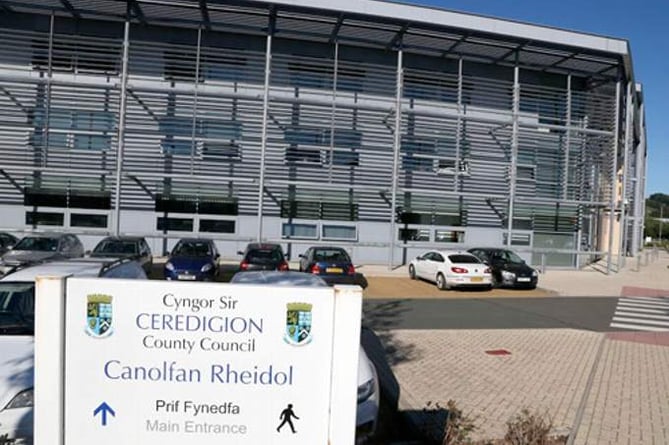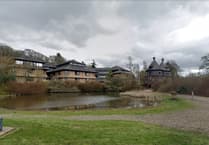SO WHOLESALE gas prices are rocketing and we’re alerted to probable soaring gas and electricity bills after a likely doubling of the energy price-cap in April.
How to react? Send an emotionally controlled note to Vladimir Putin asking if he’d mind terribly lowering the price of Russian gas? Try to master the art of drinking early morning coffee in your sub-zero kitchen while encumbered by unyielding sheepskin mittens?
Best instead to see this as a moment of liberation. A time, long overdue, to break free from the tedium of being sucked into the slipstream of a chaotic energy market ruled by volatile demand and unstable supply.
The clue, to start with, is to recognise that being dependent on electricity and gas from sources beyond our control or influence is outdated and risky. We know that renewables - free wind, free water, free sun, energy beyond the human factor - can provide all the power we need, and that this is markedly the case in rural Wales. We know it, we’re just being mighty slow to make it come true.
All right, there has been a considerable commercial cashing in on wind-power; some people have got solar or photovoltaic panels, yielding partial independence from energy conglomerates. And some community groups have gone to enormous organisational lengths to get their own turbine.
But all this is a long way short of the ideal, and the achievable.
Quite simply, energy-provision must be added to the list of all the other free-at-the-point-of-need public services we take for granted.
The NHS, fire, rescue, police and ambulance services, schools, roads, public libraries, refuse-collections, coastguards… All are paid for through taxes of one sort or another. And, crucially, all are free at the point of delivery.
Energy-provision should be exactly the same.
It takes just a single piece of local government history to illustrate precisely how people have for far too long been missing out on energy free at the point of use.
In 2006, the Cambrian News discovered that Ceredigion council had been secretly negotiating a £1m land deal so that it could build prestigious new council offices next to a recently announced Welsh Assembly Government headquarters at Parcyllyn on the outskirts of Aberystwyth.
The public had been told nothing about a land deal or about new offices. It hadn’t been consulted. Yet this grand new edifice was going to cost the taxpayer £18m. The Cambrian News objected repeatedly to what it saw as irresponsible spending. Council staff, it argued, occupied perfectly civilised offices around Aberystwyth and were important to town centre businesses. Eventually, the authority pulled back and adopted a design about £3m cheaper. But it was a pale victory for taxpayers and for press campaigning.
A major opportunity had been missed. If, rather than lashing out on what was basically a vanity project, the council had instead ploughed those millions into a taxpayer-owned windfarm of, say, 20 two-megawatt turbines, the average annual electricity needs of 20,000 homes, about two-thirds of the Ceredigion total, would have been met. If technology allowed, power could have been fed directly into those homes; otherwise, it could have been sold by the council to the local grid, with individual households then receiving cash payments for the energy these publicly-owned turbines had generated.
The development would have reduced Ceredigion’s carbon-footprint by about 50,000 tonnes a year (600,000 over the 12 years since the council’s Parcyllyn offices were completed), and proclaimed active support for a sustainable energy future for the county.
It would have been a historic and radical departure, establishing, for the first time, energy-provision as a public service free at the point of delivery.
Alternatively, individual or smaller numbers of turbines supplying homes directly could have been funded and maintained - and of course still could be now, 12 years later - by public money from a variety of sources. The new co-operation agreement between Labour and Plaid Cymru, which talks of “community-owned” renewables-generation, could encompass such an arrangement, provided it was financed through public, not private, money.
Wind-turbines don’t occupy much land, so Ceredigion council should now make up for lost time by setting them up on, for example, one or more of its publicly-owned ‘county farms’, striking a belated blow for household power free at the point of use, and for energy independence. Powys, with a farms estate totalling 10,700 acres, should do the same.
Another valuable initiative would be Welsh government financing of photovoltaic panels for, progressively, every home in Wales. As well as consolidating the free-at-the-point-of-use principle, this would add to energy self-sufficiency, climate-change amelioration and job-creation, and would support the NHS by helping to keep warm and well people caught in the fuel-poverty trap.




